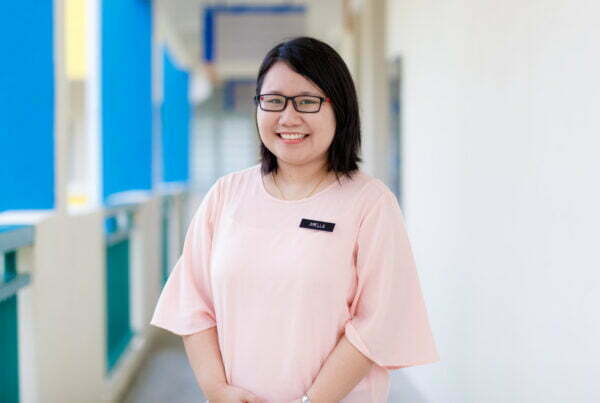One year ago, I was sitting in my parents’ house in Penang. I’d come back from studying in England, and I really missed it. In theory, I was really excited about my upcoming time with TFM, because I was really interested in education policy and wanted the experience of being a teacher in Malaysia. But in practice, I was moping in my parents house, rereading lots of my favourite childhood books and feeling way too antisocial to go to my matriculation event.
A month later, I was having a great time at Institute, sharing sleep deprivation and weird inside jokes with other members of the 2014 cohort.
And then a few months later, some of the 2014s were hiding each other from their Facebook news feeds. Here’s how it happened.
So you survived a really tiring day at school. All of your classes were messy. During your free periods, there was just so much administrative work that you didn’t know where to start, so you didn’t start. And then during your last class, a kid ran out, and no one seemed to understand anything; and you feel really bad because you know you could have planned the lesson better if you hadn’t been sleepy the night before from doing you teaching diploma assignments at the last-minute.
And then you get home, and you think, okay, I really want to make tomorrow’s lessons extra amazing. But I also need a break from school stuff, so I’m just going to look at Facebook for a bit.
And then you open Facebook, and this is what your news feed tells you:Yang Safia is collecting donations to paint her classroom. Chow is translating his English lessons into Chinese and Tamil. WeiSheng’s student gave him Vitagen. Illi’s students gave her thank-you notes, and one student invited her to their house for a family event.
Theen Yew dressed up as the author of a literature component poem, and as the naggy Aunty Wong, and as the Dayak warrior Sir Mata Mata Tap Ti Tap, complete with headdress, shield, rotan sword, and loincloth (over his regular clothes). And he brought a kid to tears by helping him see that he should forgive his bullying classmates because Allah Maha Pemaaf.
“Hide updates.” All of those are true stories, by the way.
Now, my personal default is checking Facebook once a day. But whether you do that, or use Facebook as your default procrastination, or block every single person in your cohort, there’s still a very good chance that, on tired evenings, you will find yourself asking, “Am I a good teacher? Will I ever be a good teacher? What is the meaning of life?”
But before you get there, I want to tell you that “Am I a good teacher?” is a bad question.
You’re going to encounter all kinds of metrics for good teachers. In my school, I’ve seen at least four different teacher assessment frameworks from different Ministry of Education directives and officials. My Institut Aminuddin Baki coach talked me through another set of teaching standards. At our UUM diploma classes, we learnt yet another classroom observation structure. TFM itself uses a set of competencies called Teaching as Leadership.
This year, TFM teachers also participated in another assessment, in which every student in one of your classes answers a survey on your teaching. Thousands of Teach For All teachers in other countries also did this assessment. When the results came back, they showed that I scored below the Teach For Malaysia average on every single one of the 35 questions that students answer.
If I wanted to, I could probably pick at the phrasing of the questions, the timing of the survey, how I gave instructions for it – any number of things – to justify why my results turned out that way. But I don’t feel a need to. Because I really do believe what I tell each of my five English classes before they take any test:
That your exam marks are not a measure of your value as a person. That marks are a snapshot of where you are, but also of your mood and health that day, and how warm the weather was, and whatever happened right before the exam. And that the most important thing about an exam is how much you learn through it, because learning is a long journey.
Here’s why I think “Am I a good teacher?” is a bad question. “Am I a good teacher?” implies that the world is made up of good teachers, who are doing wonderful things for their kids, and bad teachers, who are not. I think that almost all teachers are good teachers in some ways, and bad teachers in others. And I certainly don’t think that any perfect teacher exists, because, in our mixed-up, colourful world, there are just too many ways to be a good teacher. And that’s a good thing.
So when you’re tempted to ask, “Am I a good teacher?”, whether to beat yourself over the head when you already feel guilty, or to feel really self-satisfied because you did this really cool thing in class that no one else would have thought of, yo; then stop yourself. Say to yourself: yes, I’m a good teacher, and how can I be a better one?
[But don’t say that to yourself all the time. You owe it to your emotional health to maintain parts of your life that aren’t all about school. You owe it to your students too, most of whom will have narrow horizons, and who need to see what a balanced adult who is excited about the the wider world looks like.]And I promise you that you will surprise yourself. I haven’t had any surprises in the “Whoa, my class average improved by 7000 percent in the monthly test!” category. Some people in my cohort have. Well, not quite 7000 percent, but you get what I mean. I’m still hoping for surprises like that, both for my kids’ future careers and because this small dark part of my ego still wants to be a Good Teacher.
But I’ve had my own surprises. Last Tuesday, when two members of the 2015 cohort were at my school for their Rancangan Orientasi Sekolah, my Form 4 students were working on a comprehension passage. I was walking around to chat with them while they worked, and I got one student to write his answer to the first question on the board. And then one girl says, “Teacher, teacher!” and asks me to check her answer to the second question, and she says she wants to write it on the board if it’s correct.
So I look at her answer, and I say, “Good! It’s correct. I just want to you try to write in a complete sentence, and that last bit is extra, so you don’t need it.” So I help her change her “eight glasses of water a day to stay healthy” to “We must drink eight glasses of water a day.” And she writes that on the board.
And then as I walk away from her, I realise: wait a minute. Earlier in the year she would sort of space out in my class and be really passive, because she was embarrassed about her poor English. And then at one point she told me, “Teacher, saya nak belajar BI. Saya tak kisah kalau kena mula balik dari tahap sekolah rendah. Saya nak belajar.” And she still failed the monthly test, but there she was, understanding an English passage and putting herself forward to to answer a question.
And then several students separately start saying the same thing. “Eh, teacher, that answer correct meh? You see the question: ‘How many glasses of water must we drink, and why?’ Why no ‘why’ in the answer?”
Because I’d forgotten about the “why”. So it turned out that the girl’s initial answer, “eight glasses of water a day to stay healthy”, was more correct than my corrected version.
“Haha, sorry everyone! You’re correct. Thank you for seeing that. Please change the answer on the board.” But under my sheepishness, I was secretly surprised and really, really proud of them for applying principles I’d been trying to show them all year: Read the question. Don’t just copy blindly. Ask if you don’t understand. Be brave about making mistakes.
And you know one reason why I made the mistake of not remembering the “why” bit of that comprehension question? Because those questions and that passage were written Theen Yew, the guy who dressed up as Sir Mata Mata Tap Ti Tap and who made a kid cry. Theen Yew and I collaborate to pool resources for Form 4 English. And the reason that Theen Yew and I have this collaboration is that Yang Safia, the woman who was painting her classroom, suggested the idea in the first place. It’s not a perfect collaboration, but we’re learning from each other. And we’re helping each other to become better teachers.
So, 2015 cohort, as you get ready for your pre-service programme, and as you get ready for at least two years of school, may you learn so much from each other about how to be good teachers. And may you surprise yourselves.





